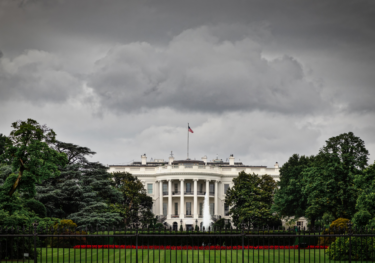Goldilocks global recovery? Consumers will decide
Our forecast for global GDP growth has been revised up again to 6.3% in 2021 and 4.6% in 2022, while the outlook for inflation remains relatively benign. Despite our optimistic outlook relative to other forecasters, we are mindful of the upside risks that the estimated $4.7trn of excess saving sitting with advanced economy households represents. We explore two upside scenarios related to the spending of these savings and the possibility that it may lead to overheating in parts of the global economy.
Please note that we will be holding one webinar each for Americas, APAC and EMEA friendly timezones:
- EMEA – Tuesday 18th May | 10:00 BST
- Americas – Tuesday 18th May | 16:00 EDT
- APAC – Wednesday 19th May | 10:00 HKT

|
Innes McFee| Managing Director of Macro and Investor Services Innes McFee is Managing Director of Macro and Investor Services, based in London. Innes oversees the activities of the Macro & Investor Services teams globally, including the Global Macro Forecast and Global Macro Service. Innes joined Oxford Economics in 2017 after 6 years at Lloyds Banking Group as a Senior Economist. At Lloyds Innes was responsible for the economic scenarios underpinning the Group’s internal planning and stress testing; analysis of key risks; and developing Lloyds’ approach to multiple economic scenarios for IFRS9. In addition, Innes’ role included developing the Group’s capability in modelling macroeconomic fundamentals and UK banking markets and advising the Group Corporate Treasury on financial market developments. Prior to joining Lloyds Innes was an Economic Advisor at HM Treasury where his roles included management of the UK’s foreign currency reserves; US economist; and G20 macroeconomic policy advisor. Innes has a first class undergraduate degree in Economics from the University of Durham and a MSc in Economics from Warwick University.
|

|
Ben May | Director of Global Macroeconomic Research Ben May is a Director of Global Macroeconomic Research at Oxford Economics and is involved in the production and presentation of the company’s global macroeconomic views, with a leading role in our coverage of the advanced economies. Ben joined Oxford Economics in April 2014. He has over 15 years’ experience as a macro economist in the public and private sector and has over a decade’s expertise covering the Eurozone economy. Before joining the Global Macro team, Ben worked on the Eurozone team at Oxford Economics. In addition to his working covering broad Eurozone issues he was also responsible for research on the ECB and Germany. Prior to joining Oxford Economics, Ben spent over six years at Capital Economics and was responsible for the coverage of the southern Eurozone economies throughout the Eurozone crisis. Before that, he spent seven years at the Bank of England, working in three divisions of the Monetary Analysis area of the Bank, which provides research and analysis for the Monetary Policy Committee. Ben has a BSc in Economics with Statistics from the University of Bristol and an MSc in Economics from University College London. |
Related Services

Event
Frontier markets outlook: Looking for opportunities after the rally
In this webinar we will discuss which frontier markets still offer value in the wake of an extraordinary rally since October, and which have become too expensive, in our opinion. We will also offer further insights into the cases of Argentina, Nigeria, Ukraine and others.
Find Out More
Event
Economics of a second Trump presidency
Continuing our series of analyses on the 2024 election, we modeled the macroeconomic impact of a second Donald Trump presidency. If the former president wins on Election Day, he will most likely return to the White House with Republican majorities in the House of Representatives and Senate. Assuming full Republican control of government after the 2024 election, we constructed two scenarios that bookend a range of outcomes for the US economy. This webinar will discuss the results of the Trump scenarios, including for inflation, GDP, monetary policy, trade and immigration.
Find Out More